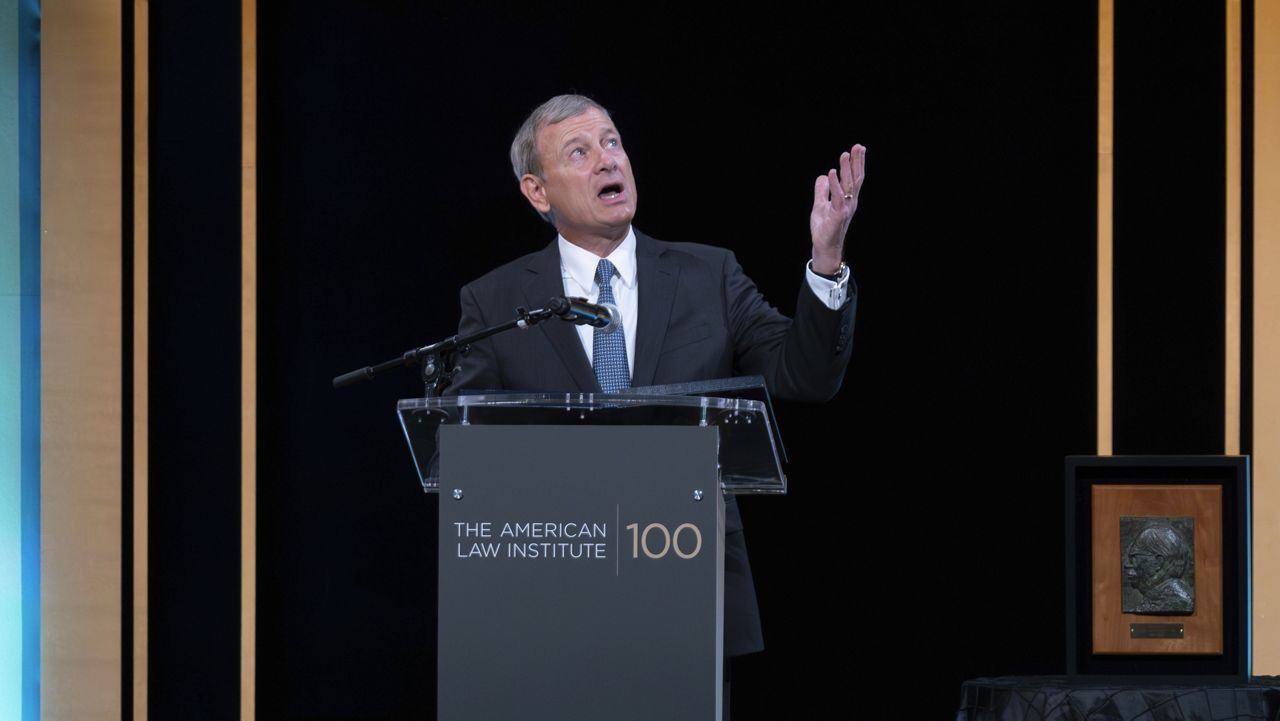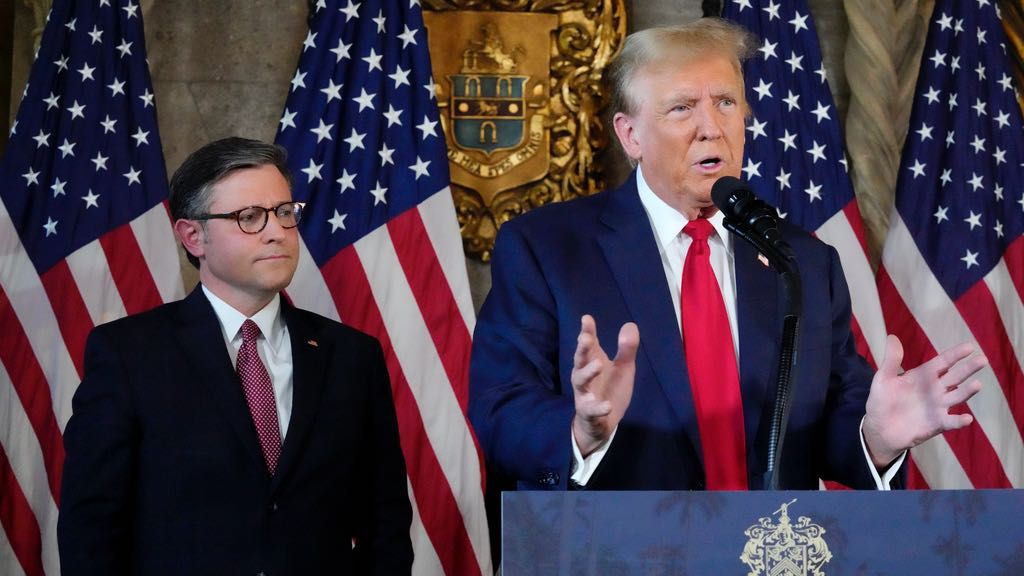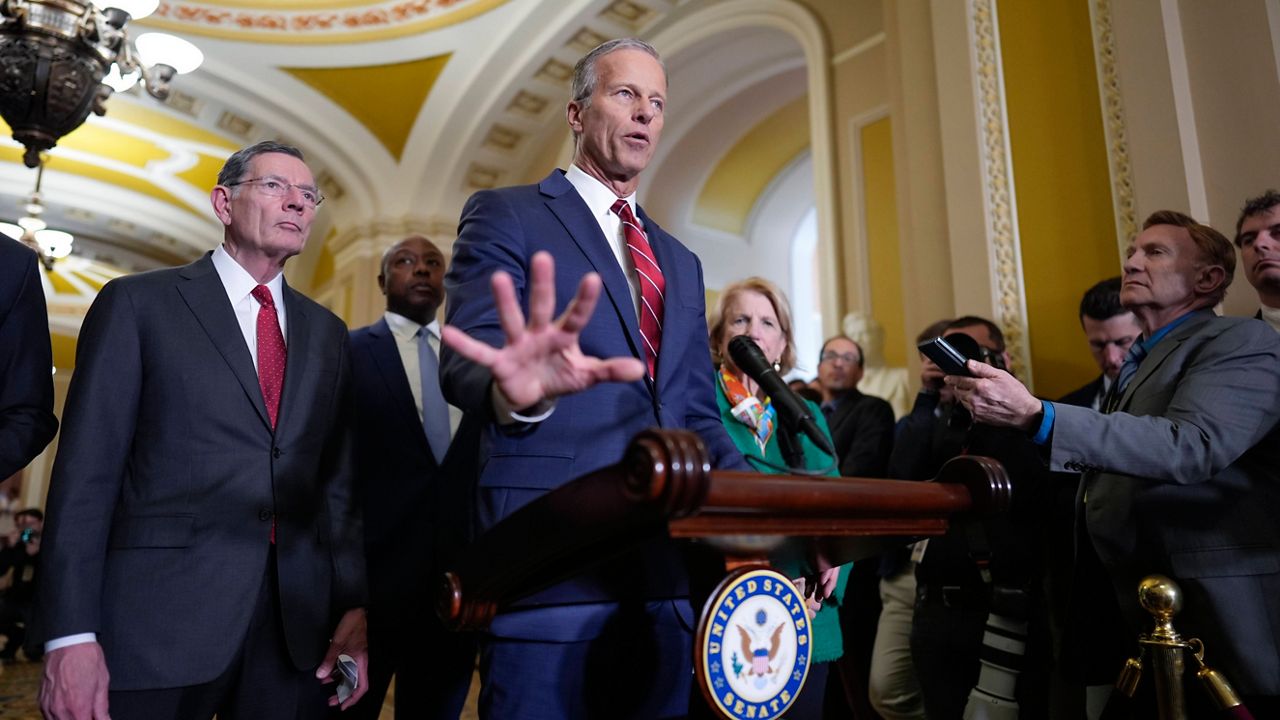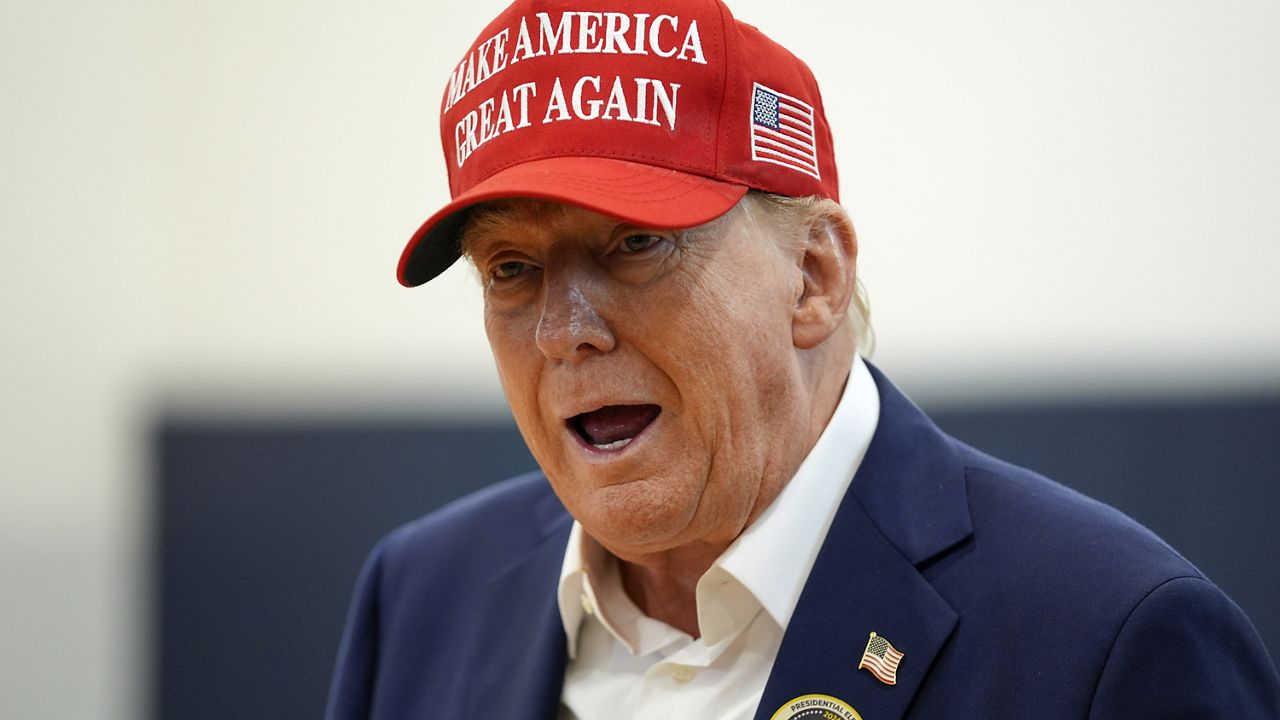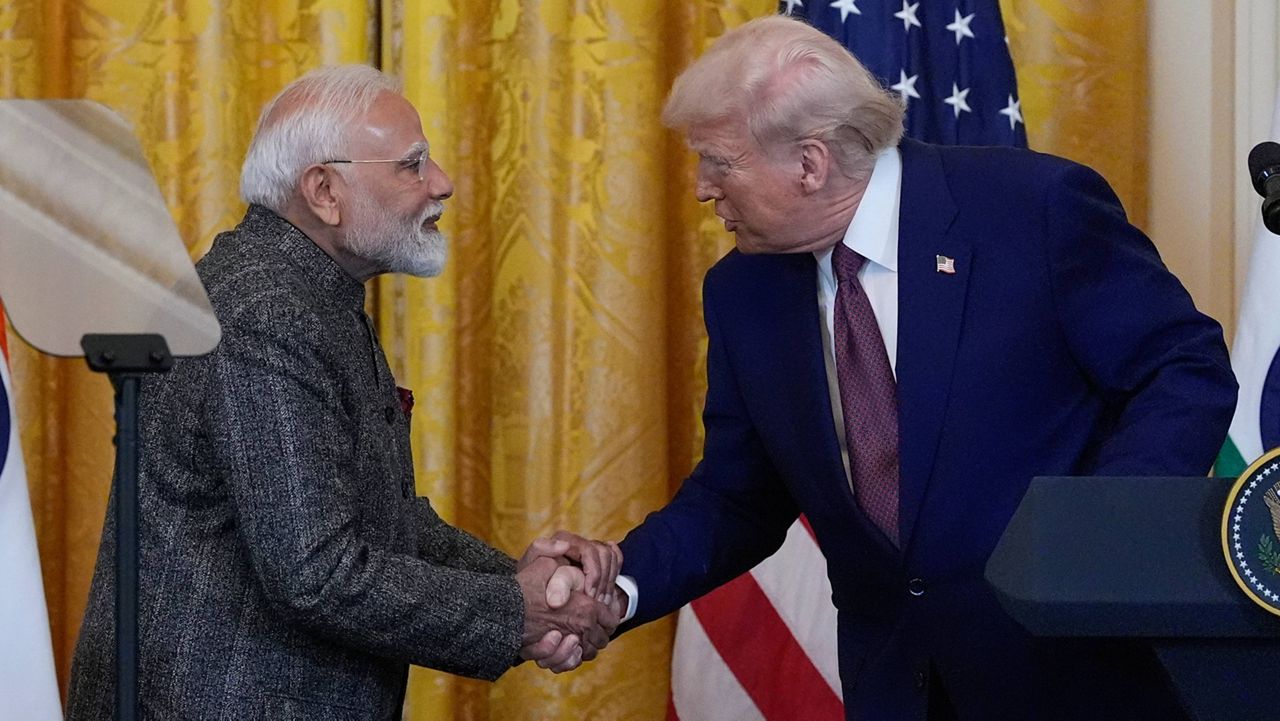Supreme Court Chief Justice John Roberts sought Tuesday night to ease Americans’ concerns about the high court’s ethics while also suggesting changes to its policies could be in the works.
What You Need To Know
- Supreme Court Chief Justice John Roberts sought Tuesday night to ease Americans’ concerns about the high court’s ethics while also suggesting changes to its policies could be in the works
- Roberts’ comments follow recent reports that billionaire conservative donor Harlan Crow paid for private flights and luxury vacations for Justice Clarence Thomas over 20 years; covered private school tuition for Thomas’ great nephew, whom Thomas raised; and bought real estate from Thomas
- Congressional Democrats are pushing for legislation to strengthen ethics rules for justices; Roberts and Republicans arguing such a bill would violate the Constitution's separation-of-powers clause
- During Tuesday’s speech, Roberts also criticized the public treatment justices have received
“I want to assure people that I am committed to making certain that we as a court adhere to the highest standards of conduct,” Roberts said at the American Law Institute’s annual dinner in Washington, where he received a medal named after late federal Judge Henry Friendly.
“We are continuing to look at things we can do to give practical effect to that commitment,” he added. “And I am confident there are ways to do that, that are consistent with our status as an independent branch of government under the Constitution’s separation of powers.”
Roberts’ comments follow recent reports that billionaire conservative donor Harlan Crow paid for private flights and luxury vacations for Justice Clarence Thomas over 20 years; covered private school tuition for Thomas’ great nephew, whom Thomas raised; and bought real estate from Thomas.
Thomas did not disclose any of the payments or the real estate transaction.
The longtime justice has defended the trips as “personal hospitality from close personal friends” who had no business before the court. He added he had previously sought guidance from colleagues and was told he did not have to disclose the travel.
Thomas reportedly believed he did not have to disclose the 2014 real estate sale because he lost money on the deal but is amending his financial disclosure forms to include it.
Thomas has not commented publicly on ProPublica’s report about the tuition payments. Crow’s office told the news organization the billionaire “has long been passionate about the importance of quality education and giving back to those less fortunate, especially at-risk youth,” adding, “he and his wife have supported many young Americans through scholarship and other programs at a variety of schools.”
Arguing that the Supreme Court is failing in policing itself on ethics, which is hurting public confidence in the court, congressional Democrats are pushing for legislation to strengthen ethics rules for justices.
Roberts declined an invitation to testify before the Senate Judiciary Committee earlier this month, citing “separation of powers concerns.”
Republicans, too, argued at that hearing that it would be unconstitutional for Congress to pass ethics legislation governing another branch of the government. Experts who testified, however, were divided.
During Tuesday’s speech, Roberts also criticized the public treatment justices have received.
“There's much in the legal arena that he [Friendly] would find abhorrent: a judge heckled and shouted down at a law school, protesters outside the homes of justices to the extent that Marshal protection is needed 24/7,” Roberts said.
After it was leaked last year that the Supreme Court planned to overturn Roe v. Wade, which protected abortion rights nationally, protesters gathered outside of justices’ homes. The FBI arrested and charged one man with attempting to kill Justice Brett Kavanaugh.
Amid protests, Roberts ordered fences erected around the court. He said Tuesday that was “the hardest decision I had to make” in 18 years on the court.
“I had no choice but to go ahead and do it,” he said. “While it was going on, while the fences were going up, I kept hearing [former Chief Justice] Charles Evans Hughes' remarks at the opening of the Supreme Court building. He said, ‘The republic endures, and this is the symbol of its faith.”
Ryan Chatelain - Digital Media Producer
Ryan Chatelain is a national news digital content producer for Spectrum News and is based in New York City. He has previously covered both news and sports for WFAN Sports Radio, CBS New York, Newsday, amNewYork and The Courier in his home state of Louisiana.




